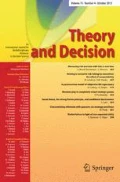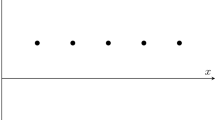Abstract
This paper offers a critique of the view that causation can be analyzed in terms of explanation. In particular, the following points are argued: (1) a genuine explanatory analysis of causation must make use of a fully epistemological-psychological notion of explanation; (2) it is unlikely that the relatively clear-cut structure of the causal relation can be captured by the relatively unstructured relation of explanation; (3) the explanatory relation does not always parallel the direction of causation; (4) certain difficulties arise for any attempt to construct a nonrelativistic relation of causation from the essentially relativistic relation of explanation; and (5) to analyze causation as explanation is to embrace a form of “causal idealism”, the view that causal connections are not among the objective features of the world. The paper closes with a brief discussion of the contrast between the two fundamentally opposed viewpoints about causality, namely causal idealism and causal realism.
Similar content being viewed by others
Author information
Authors and Affiliations
Additional information
Work on this paper was supported in part by a National Science Foundation grant.
Rights and permissions
About this article
Cite this article
Kim, J. Causes as explanations: A critique. Theor Decis 13, 293–309 (1981). https://doi.org/10.1007/BF00126965
Issue Date:
DOI: https://doi.org/10.1007/BF00126965




